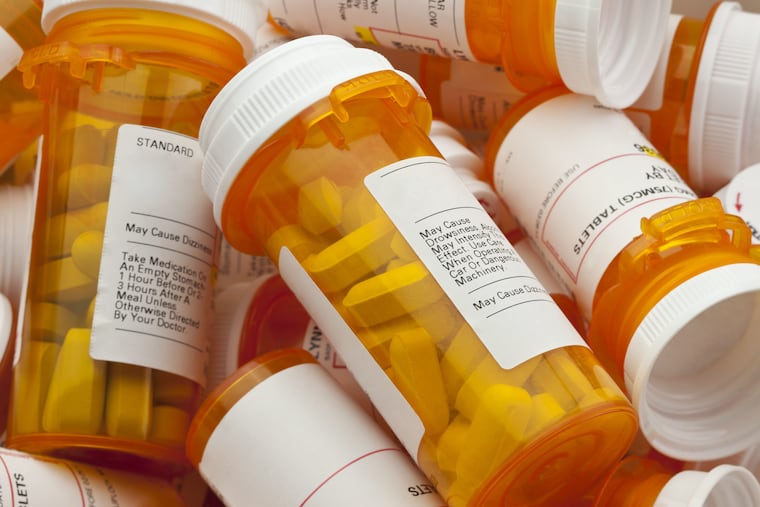Safely disposing of medicine is easier, and more important, than you think
Once prescription drugs are no longer needed or expired, it’s time to get them out of your home; there are several convenient ways to keep your family and community safe.

On one weekend in late April, large boxes tagged with “Don’t be a dealer” posters popped up across the nation to serve as a simple way to help combat the opioid epidemic. The Drug Enforcement Administration’s National Prescription Drug Take Back Day encouraged people to get dangerous medications out of their homes by dumping them in oversized boxes at community sites, often hosted at fire and police stations.
For those who participated over the April 27 to 28 weekend, the next Monday morning marked a job well-done; they used the event to make their communities safer. For those of us at the Poison Control Center at Children’s Hospital of Philadelphia (CHOP), it was back to work as usual. As public health practitioners, we know the problem far too well to be tempted to rest on our laurels.
Every day, we receive emergency calls related to prescription drug abuse, self-harm attempts, and accidental ingestions.
Most of the calls we receive come from inside a home. A small child finds a mysterious bottle of medicine on a tabletop or in a junk drawer. A teen or adult decides to try out a painkiller, or maybe a dozen of them. An adult mistakenly takes a spouse’s old post-surgery medicine since the prescription bottles look the same. A frantic caregiver worries if a loved one needs go to the hospital. Our pharmacist and nurse experts calm the caller down while investigating the situation and triage the case to appropriate care.
You can help prevent these situations from happening to your own family by taking personal responsibility to safely dispose of and safely store the medicines in your home. Once they’re no longer needed or expired, it’s time to get them out of your home. There are several convenient ways to keep your family and community safe:
First choice: Take your medicine to a year-round drug disposal site
While National Prescription Drug Take Back Day is a great way to encourage community involvement in fighting the opioid epidemic, you are not limited to the semi-annual event. You can use the DEA’s website to find your closest year-round drug take back site by entering your zip code here. It may be your pharmacy, so plan to bring in your unused or expired medicines next time you need to pick something up.
Second choice: Safe at-home disposal
If it is not convenient for you to take your medicine to a drug take-back site, you can safely dispose of medicines at home in three simple steps:
Mix the medicine with something you wouldn’t want to eat, such as coffee grounds, kitty litter, or leftovers.
Put the mixture in a container and seal it. An empty margarine tub works great. Get creative!
Throw it away. Easy and safe!
Third choice: The FDA’s Flush List
The Food and Drug Administration has a list of about 15 dangerous medicines that should be flushed down the toilet if they cannot be taken to a drug take-back site. Most are opioids. The small list of drugs was carefully chosen because they are all known to cause severe side effects, including respiratory depression and death, among those not meant to use them. Sadly, 9,500 children under the age of six are hospitalized annually after ingesting someone else’s FDA Flush List drug.
We are always balancing the risks and benefits of the environmental impact of drug disposal. However, the FDA’s Flush List is incredibly small in comparison to all drugs on the market, and the convenience of this simple action has potential to save lives.
Remember to safely store the medicine you need to use:
Make sure all medicine is stored up high, out of the reach and sight of children. Consider purchasing a cabinet lock.
If guests are entering your home with medicine in their purses, make sure the purses are out of the reach of small children; they love to explore a new bag, especially grandma’s.
Never let babies play with pill minders or bottles as a rattle
For highly dangerous medications (such as those on the FDA’s Flush List), consider purchasing a medicine lock bag. Don’t store these medicines in the more public places in your home or where teens could have easy access.
Remember, your regional Poison Control Center is always ready to help with your drug and chemical safety questions, both big and small. Save 1-800-222-1222 as a contact on your phone. The number will immediately connect you with pharmacist and nurse experts. If you live in eastern Pennsylvania or Delaware, you’ll be connected with us at CHOP. We are here 24/7, always free of cost, and free of judgment.
Lauren Longo, MSPH, is a health education specialist at the Poison Control Center at Children’s Hospital of Philadelphia.